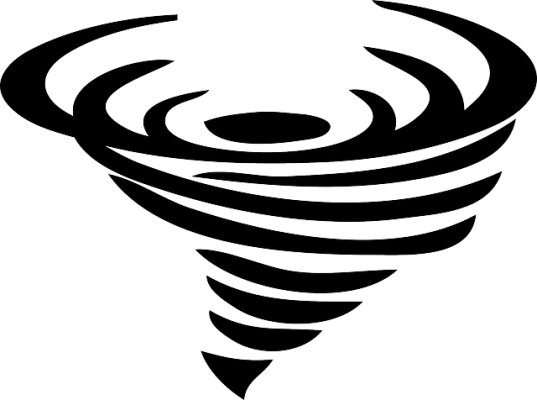The Four Agreements
From Chance to Wisdom
In my experience, there are four agreements that are necessary as foundations for any healthy relationship regardless of the context - meaning it doesn't matter if it's a professional context, if it's friendship, or if it's sexual, intimate, and romantic.
In fact the more intimate it is the more important I think these agreements are, but unfortunately - and paradoxically - the less likely someone is to actually be willing to have the conversation that’s required. That's for many reasons, most of them self-esteem issues are at their source and fear-based.
Let me explain: If we are attached to the hope that someone will like us, to the degree that it becomes a need for their approval and therefore induces fear in ourselves, and/or we have scarcity around whether or not we will actually find somebody who is a fit, or whether or not we can find someone else if a relationship does not work out, we have a tendency to overlook things that we know are important to address because if the person doesn't like us then we may take that personally in the case of a self-esteem issue, or we don't want to set up any barriers to them liking us or connecting with us.
But in doing so, we skip over critical foundational steps - and virtually assure we end up with someone who is not a fit or find ourselves in a conflict without the agreement reality as to how we find our way out of it and get back into connection.
So we ignore wisdom in favor of the immediacy of false connection - so as to not "rock the boat". At its worst, of course, this borders on codependency and external validation and that a path that if you continue down that road leads to frustration, heartache, and worse.
However if we have an abundance mindset - a certainty that there are plenty of people out there who might be a fit for us - and fit is more important than not being alone - we understand that it's easier to find somebody who's a fit that it is to deal with the frustration and challenges and eventual heartbreak of someone who is not a fit, and we are internally validated in terms of our esteem for ourselves, then we choose wisdom over chance.
The reality is we are actually choosing wisdom and communication over something much worse than chance: predictably negative results.
When do I lay out these agreements? On the first date.
Some people may fret at this moment - and they are worried it is too late - they already skipped over these agreements and find themselves in the quagmire of shoulds and implicit agreements and unstated yet clear expectations you never agreed to. That can be an icky and frustrating place.
But don’t fret: you can transform any relationship - or “reboot” or - or start over from scratch and begin to date someone again - you can use the agreements as a way to transform friendships - I have. I have used the agreements and the conversation around them to bring years-long friendships back to life.
We’ll talk about skillful means - how most effectively to do that - after we lay out the agreements and flesh them out fully.
The Agreements
Four Foundational Agreements For Healthy Relating
- We tell the truth and we hear the truth and we value truth over comfort
- We do not hold anyone accountable to agreements they have not made
- If we are upset, we make a request (for a new agreement)
- We accept that we are responsible for our own experience and our own emotions.
- Make no assumptions
- Don’t make anything up
Let’s examine each of these agreements fully.
Agreement 1: Truth Over Comfort
The first agreement is that we tell the truth and we hear the truth and we value truth over comfort.
The “comfort” might be our own, or it may be the comfort of others.
Here is an excellent standard: if we are afraid to say it - or afraid that somebody can’t hear it or might take it personally - that’s probably the very thing that should be said.
And as I am sure you have experienced, the longer we delay the telling of that truth, the bigger it becomes in our mind and the worse it will be when we tell them - for the relating, for our internal anxiousness around sharing it, and for them when they find out how long we delayed; telling the truth brings relief for all without delay. There may be broken agreements to clean up - something we will address later on in this book, but that aside, telling the truth should increase intimacy and connection.
Hearing the truth - if done openly and spaciously - always will.
Telling the truth is not an excuse to be a jerk.
There is a popular theme in some circles where someone is a jerk (that is a technical term) and they finish it off (or begin it) with “I am just speaking my truth”.
That is not in alignment with the spirit of this rule - because most often “speaking your truth” is just being self-indulgent. The spirit of this rule is to increase intimacy and to increase connection. Thus, we want to tell the truth with skillful means - meaning in a way that honors both ourselves, yet delivered in a way the other person is best able to receive it. As well as caring for the relating or the relationship - the 3rd entity that is created by the synergy of the two of you.
Why is this so important? Relationships begin to die in the unsaid.
The grass isn't always greener on the other side of the fence; the grass is always greener where it is tended to, cared for, and nurtured.
If there is enough unsaid in the relationship, you are not even relating to the human in front of you anymore - you are relating to all the stuff you have not said, or do not think you can say - and that shows up as being distracted, shut down, simply not present, or simply being silent. So instead of relating to the dynamic and vibrant human in front of you, you are simply in your head about … all the things.
That build-up - that residue - kills true intimacy.
And yet, telling the truth and hearing the truth are - at the very least - very different sets of capacities.
That can not be overstated - and as I have said over and over again, communication skills are physical skills that take practice - and these component skills definitely take a lot of practice.
To start with, telling the truth can take a lot of courage. Hearing the truth takes openness and, at times, a willingness to hear feedback and truths that are difficult to hear.
And the list goes on - on both sides.
But imagine telling the truth about something - something you are scared to share about yourself - and having your partner thank you, express gratitude for trusting them to share it with them, and acknowledge you for the courage that it took and to express that they trust you even more now - and to do it without judgment - with love and acceptance.











